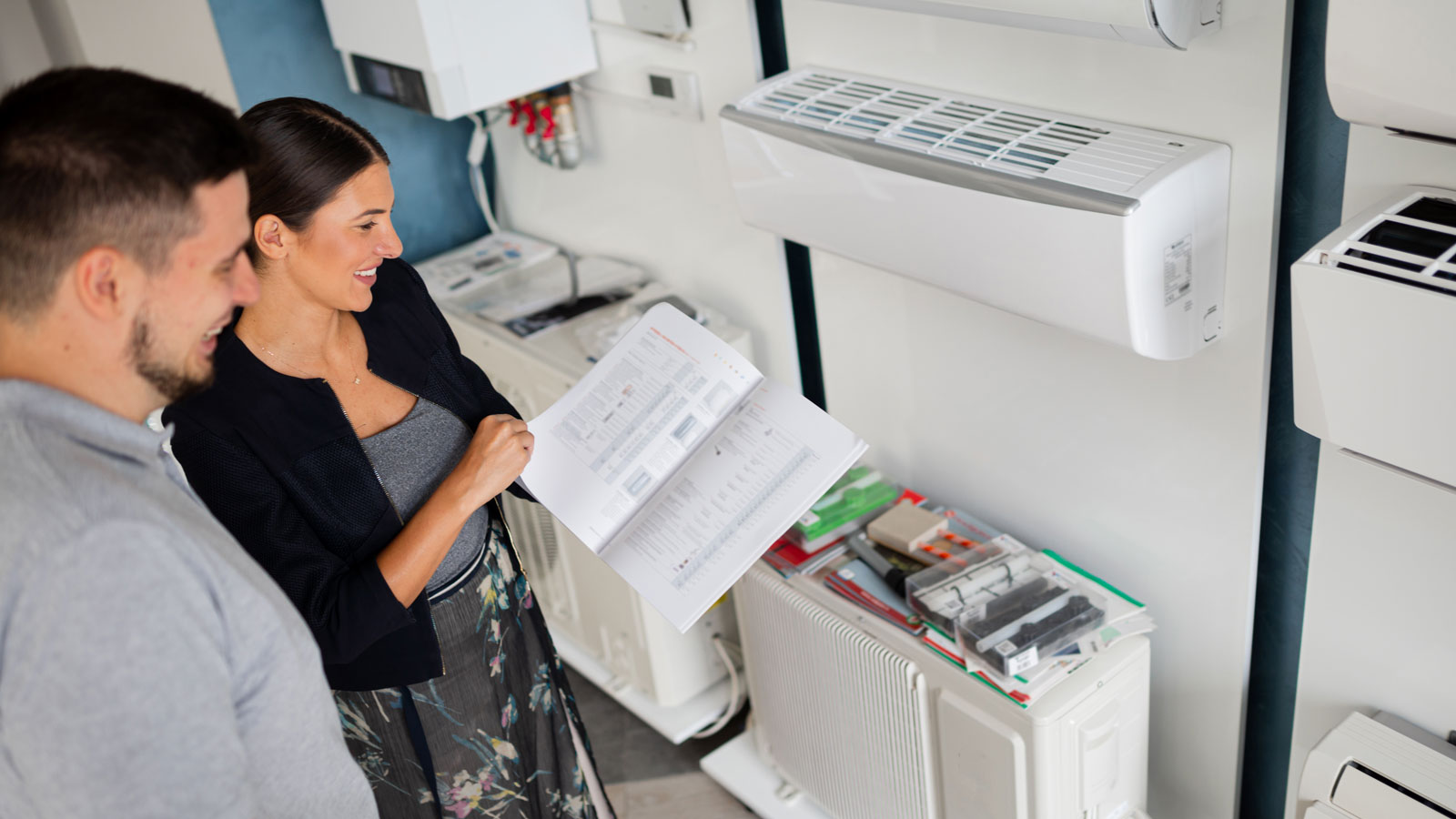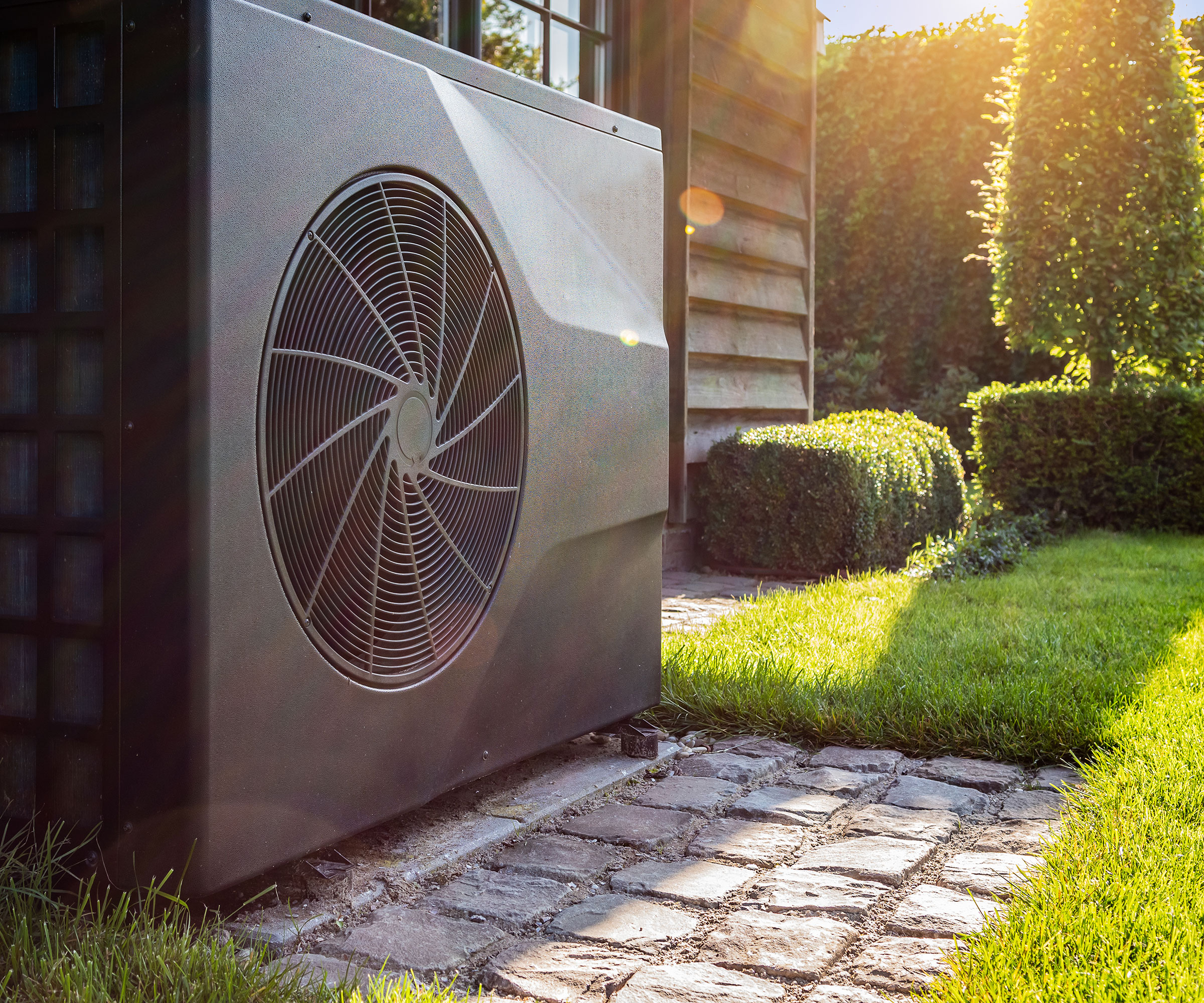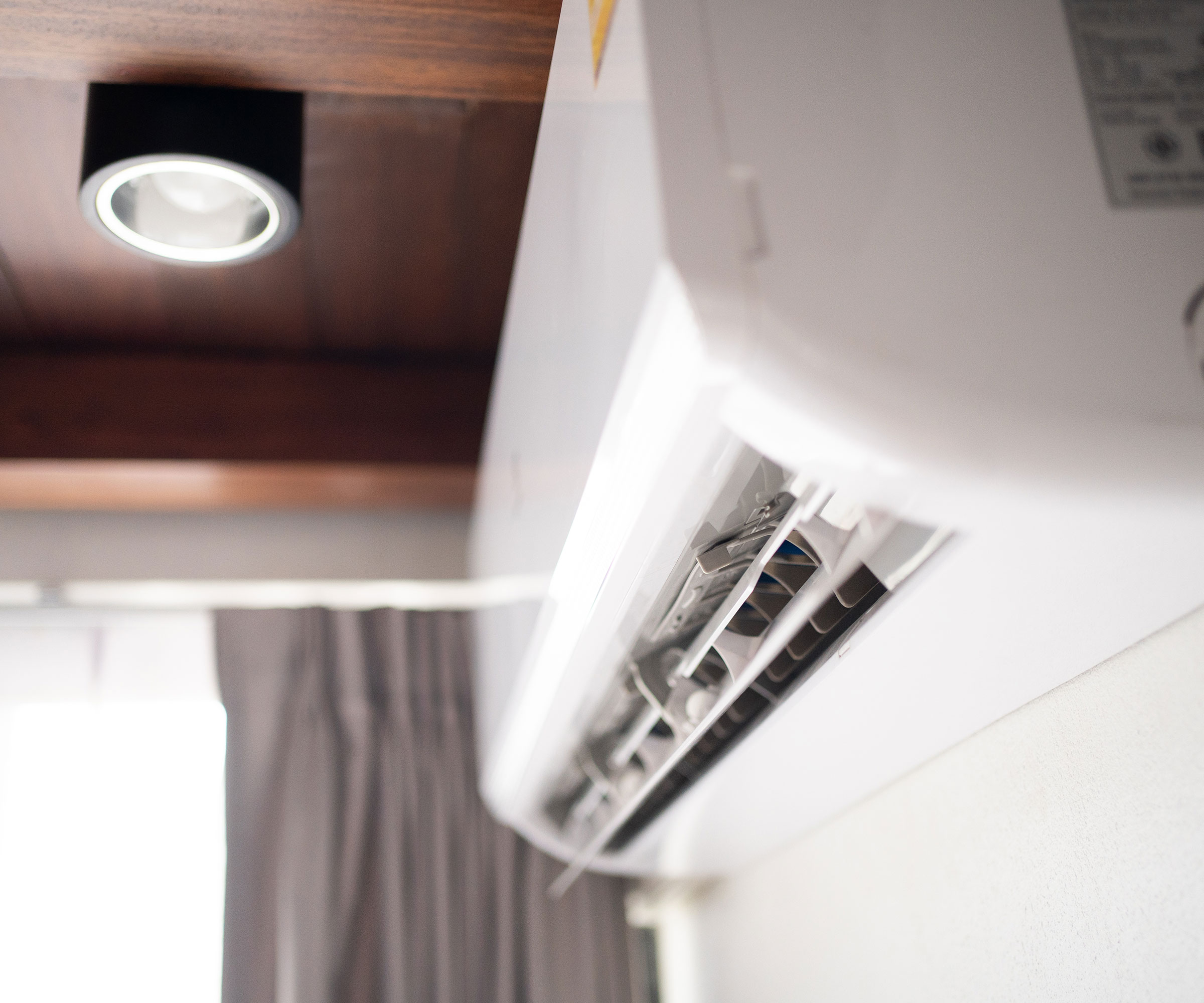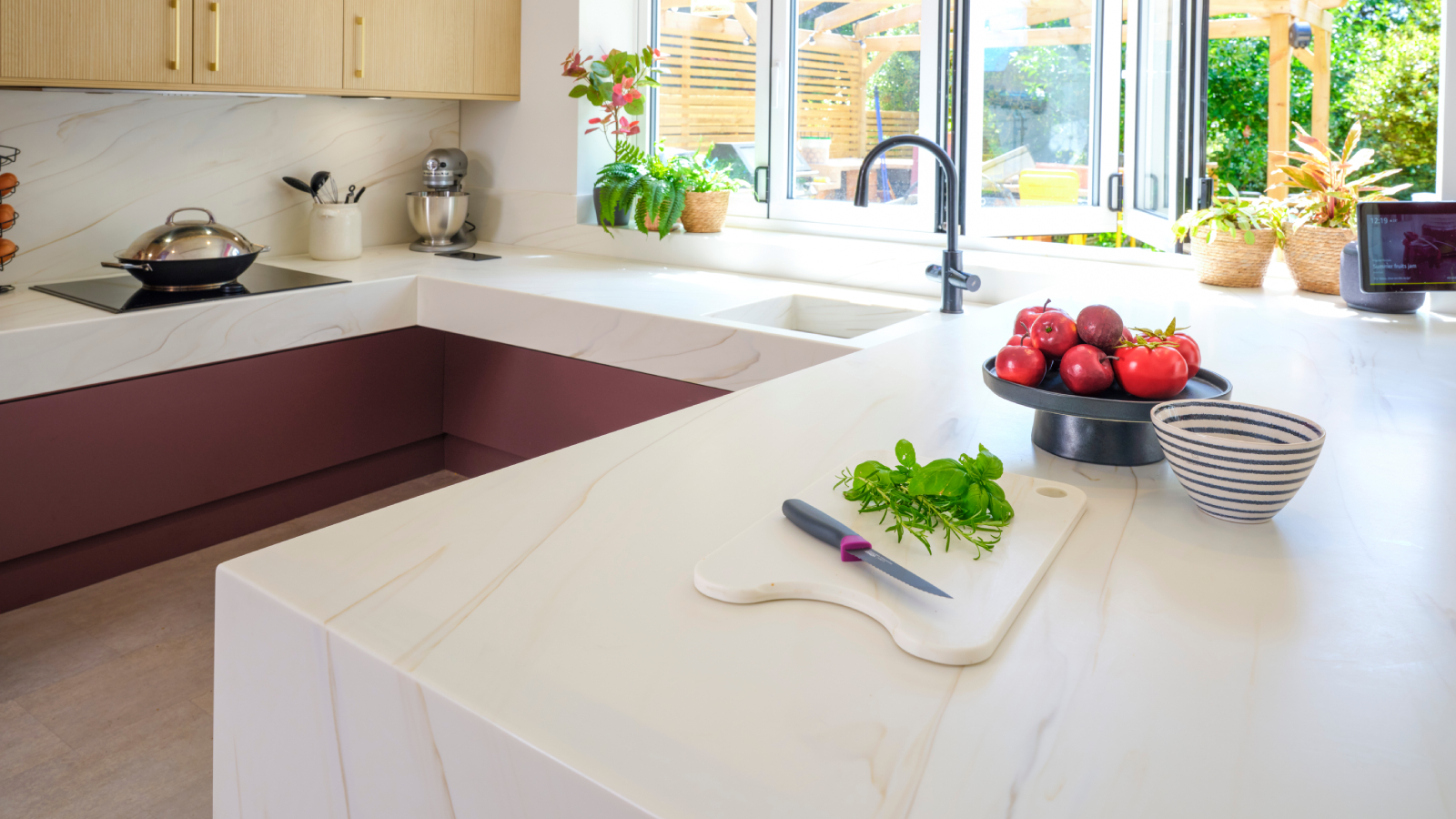HVAC vs air source heat pump — 'these systems aren’t direct equivalents,' say the experts
Do you know the difference between HVAC and air source heat pumps? Let our guide explain

Bring your dream home to life with expert advice, how to guides and design inspiration. Sign up for our newsletter and get two free tickets to a Homebuilding & Renovating Show near you.
You are now subscribed
Your newsletter sign-up was successful
When it comes to comparing HVAC vs air source heat pumps, things can get a little confusing. Thankfully, the experts we spoke to are here to help.
'When comparing air source heat pumps to traditional HVAC systems, especially from a UK perspective, it’s important to understand that these systems aren’t direct equivalents,' explains Mars Mlodzinksi, founding editor of Renewable Heating Hub.
To help clear things up, our guide is here to explain the differences between HVAC (heating, ventilation and air conditioning) systems and air source heat pumps, how each works and the factors to consider when deciding which, if either, system will be best for your needs and home.

Renewable heating expert Mars recently self-published a homeowner's air source heat pump installation guide titled 'Bodge Buster.' He is the founding editor of Renewable Heating Hub.
HVAC vs air source heat pump – what's the difference?
Before comparing HVAC and air source heat pumps, it is important to understand exactly what they are.
'In North America, HVAC often refers to centralised systems using ductwork to deliver heating and cooling, usually powered by gas furnaces or electric resistance heating paired with air conditioning,' explains Mars Mlodzinksi. 'In the UK, however, we primarily use wet central heating systems – typically radiators or underfloor heating connected to a fossil fuel boiler. That distinction alone means the debate around 'heat pumps vs HVAC’ doesn’t translate cleanly in the UK market.'
'When people talk about HVAC in the UK, they’re usually referring to systems designed primarily for cooling with added heating functions,' further explains Martyn Fowler, founder of Elite Renewables. 'Heat pumps are part of the HVAC family but with a different focus.
'A heat pump can heat and cool your home by moving heat, rather than generating it, which makes it much more efficient than a traditional HVAC set-up designed around electric or gas heating.'
Bring your dream home to life with expert advice, how to guides and design inspiration. Sign up for our newsletter and get two free tickets to a Homebuilding & Renovating Show near you.
'A heat pump is designed to be the main heating and cooling system for the home,' adds Michael Zohouri, founder of Pyramid Eco. 'HVAC usually means air conditioning for cooling, sometimes with heating built in. A heat pump is built to heat the home in winter and cool it in summer.'
'The big difference is in how they work,' picks up Martyn Fowler. 'A standard air conditioning system uses energy to chill air in summer and sometimes pairs with a separate boiler or electric heater in winter. A heat pump uses a reversible refrigeration cycle to extract heat from outside air and move it indoors, then reverses the process to cool in summer. It’s the same core technology but optimised for year‑round use.

Founder of Elite Renewables, Martyn Fowler is one of the UK's leading renewable technology experts, working with heat pumps for the last 2 decades. His passion for decarbonisation matched with a deep technical experience of the technology make him one of the industry's go-to experts for all things renewable.

Michael Zohouri is the founder of Pyramid Eco, a company dedicated to renewable energy and energy efficiency. He has extensive experience designing and installing heat pumps, improving ventilation, and upgrading insulation to make homes more efficient, comfortable, and sustainable.
Why should you choose a HVAC system?
HVAC and heat pumps work in different ways and understanding how each operates can help when comparing the two. While HVAC is often used to describe air conditioning here in the UK, it is important to understand that it is more like an umbrella term which air conditioning falls under.
'HVAC, or air conditioning, is quicker to install,' points out Michael Zohouri. 'A single or multi-split system can be fitted fairly easily. A heat pump, on the other hand, needs more planning.
'The outdoor unit needs good airflow, and the indoor system needs to work at lower water temperatures,' continues Michael. 'So you usually have to change your radiators and pipework or upgrade to underfloor heating.'

Why opt for a heat pump over HVAC?
When looking at how to choose heat pumps bear in mind that they are not interchangeable with HVAC.
'Heat pumps in the UK aren’t trying to replace HVAC – they’re replacing fossil fuel boilers, and in that role, they can perform exceptionally well when designed and installed correctly,' explains Mars Mlodzinksi. 'A key advantage of heat pumps is their efficiency. They don’t create heat like a gas boiler or electric heater; they move it from outside to inside. For every unit of electricity used, a well-installed heat pump can deliver up to three or four units of heat. That makes them far more efficient than conventional electric heating, and significantly lower in carbon emissions when powered by the UK’s increasingly decarbonised grid, or, better still, by onsite solar PV and battery storage.
'In my experience, most people who are looking for a long-term, lower carbon option choose a heat pump,' says Michael Zohouri. 'The important part is making sure the design matches the home, so it works as it should and achieves the right level of efficiency.'
'If you only want cooling in summer and you already have a reliable heating system, a standard HVAC cooling system might make more financial sense in the short term,' advises Martyn Fowler. 'But if you’re replacing heating as well, I’d recommend a heat pump. They give you heating, cooling and hot water from one system.'

How much does a heat pump cost compared to HVAC?
One of the main driving factors for most people considering one of these systems is cost – so how do HVAC costs compare to those associated with heat pumps?
'In terms of running costs, heat pumps nearly always come out ahead,' reveals Martin Fowler. 'A modern heat pump can deliver 3–4 units of heat for every 1 unit of electricity it uses. Traditional HVAC with electric heating is closer to one‑to‑one. Even if you’re comparing it with gas heating, the efficiency of a heat pump can make up for the higher unit price of electricity, especially if you run it in a well‑insulated home.
'For cooling, both systems perform similarly on efficiency – typically in the range of 15p–20p per hour for a mid‑sized room depending on the unit size and efficiency rating,' continues Martyn. 'But again, a heat pump gives you the flexibility of heating in winter with the same equipment, which can save on maintenance and installation of separate systems.'
Will HVAC or a heat pump be better for you?
Once you know how the different systems work and what they cost to run, it should be easier to come to a decision on which will be best for your needs.
'Choosing between them depends on the property and what the homeowner wants,' explains Michael Zohouri. 'If it’s just about staying cool in summer, a good HVAC, or AC, system is fine. However, if you want one system that can heat your home all winter and cool it in the summer, a heat pump is usually the better choice.
'Bear in mind though that an AC system that uses electric resistance heating will cost more to run,' continues Michael. 'A well-designed heat pump can deliver four units of heat for every unit of electricity – that makes a big difference over the winter heating season.'
'Heat pumps aren’t the right solution for every home, but in the majority of UK households, especially with improvements to insulation, they’re now a viable, future-proof replacement for gas boilers,' concludes Mars Mlodzinksi. 'As with any system, it’s not just about the technology. It’s about getting the design right, ensuring high-quality installation and supporting the homeowner with the knowledge to operate their system efficiently.'
FAQs
How much do air source heat pumps cost?
One of the main factors that puts people off installing a heat pump is the associated costs, but it is important to look at air source heat pump costs as a long-term investment.
Average costs to install an air source heat pump in the UK are £13,000. While that might sound like a lot, the Boiler Upgrade Scheme can offer homeowners £7,500 off the cost.
If you want to ensure your home remains cool and comfortable in the face of rising temperatures, be sure to research all the different types of air conditioning so you know which system will work best for you.
Natasha was Homebuilding & Renovating’s Associate Content Editor and was a member of the Homebuilding team for over two decades. In her role on Homebuilding & Renovating she imparted her knowledge on a wide range of renovation topics, from window condensation to renovating bathrooms, to removing walls and adding an extension. She continues to write for Homebuilding on these topics, and more. An experienced journalist and renovation expert, she also writes for a number of other homes titles, including Homes & Gardens and Ideal Homes. Over the years Natasha has renovated and carried out a side extension to a Victorian terrace. She is currently living in the rural Edwardian cottage she renovated and extended on a largely DIY basis, living on site for the duration of the project.

